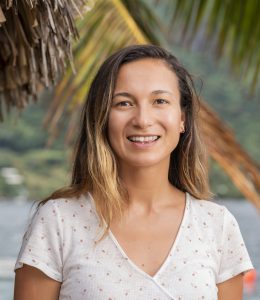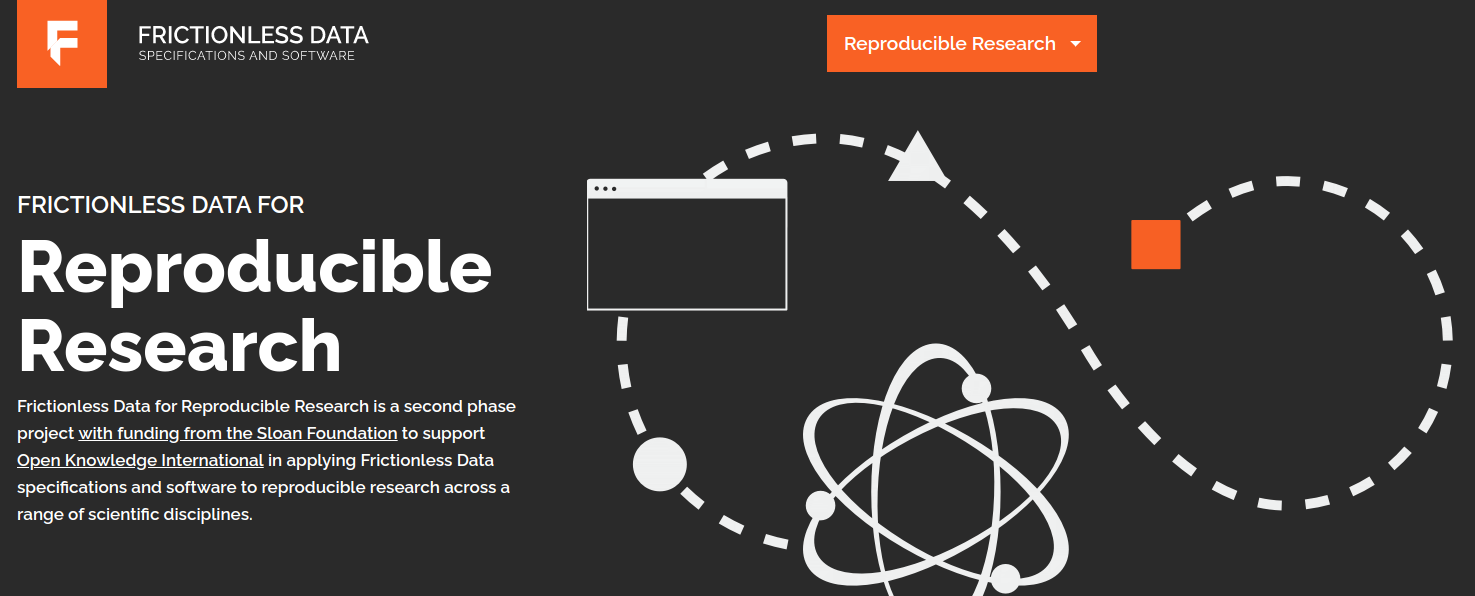The Frictionless Data for Reproducible Research Fellows Programme is training early career researchers to become champions of the Frictionless Data tools and approaches in their field. Fellows will learn about Frictionless Data, including how to use Frictionless Data tools in their domains to improve reproducible research workflows, and how to advocate for open science. Working closely with the Frictionless Data team, Fellows will lead training workshops at conferences, host events at universities and in labs, and write blogs and other communications content.

I am thrilled to be joining the Open Knowledge Foundation community as a Frictionless Data fellow. I am an interdisciplinary marine scientist getting my PhD at in the Ocean Recoveries Lab at the University of California Santa Barbara. I study how coral reefs, small-scale fisheries, and coastal communities are affected by environmental change and shifting market availability. In particular, I’m interested in how responsible, solutions-oriented science can help build resilience in these systems and improve coastal livelihoods. My current fieldwork is based in Mo’orea, French Polynesia. With an intricate tapestry of social dynamics and strong linkages between it’s terrestrial and marine environments, the island of Mo’orea is representative of the complexity of coral reef social-ecological systems globally. The reefs around Mo’orea are also some of the most highly studied in the world by scientists. In partnership with the University of French Polynesia and the Atiti’a Center, I recently interviewed local associations, community residents and the scientific community to determine how science conducted in Mo’orea can better serve residents of Mo’orea. One of our main findings is the need for increased access to the scientific process and open communication of scientific findings— both of which are tenets of an open science philosophy.
I was introduced to open data science just a year ago as part of the Openscapes program– a Mozilla Firefox and National Center for Ecological Analysis and Synthesis initiative. Openscapes connected me to the world of open software and made me acutely aware of the pitfalls of doing things the way I had always done them. This experience made me excited to learn new skills and join the global effort towards reproducible research. With these goals in mind, I was eager to apply for the Frictionless Data Fellowship where I could learn and share new tools for data reproducibility. So far as a Frictionless Data Fellow, I have particularly enjoyed our conversations about “open” for whom? That is: who is open data science open for? And how can we push to increase inclusivity and access within this space?
A little bit about open data in the context of coral reef science
Coral reefs provide food, income, and coastal protection to over 500 million people worldwide. Yet globally, coral reefs are experiencing major disturbances, with many already past their ecological tipping points. Total coral cover (the abundance of coral seen on a reef) is the simplest and most highly used metric of coral resistance and recovery to climate change and local environmental stressors. However, to the detriment of coral reef research, there is not an open global database of coral cover data for researchers to build off of. The effort and money taken to conduct underwater surveys make coral cover data highly coveted and thus these data are often not available publicly. In the future, I hope to collaborate with researchers around the world to build an open, global database of coral cover data. Open datasets and tools, when used by other researchers, show promise in their ability to efficiently propel research forward. In other fields, open science has accelerated the rate of problem-solving and new discoveries.
In the face of climate change, the ability to not reinvent the wheel with each new analysis can allow us to conduct reef resilience research at the speed with which coral reef degradation necessitates. Ultimately, I deeply believe that maintaining coral-dominated ecosystems will require: 1) amplification of the perspectives of coastal communities; and 2) open collaboration and data accessibility among scientists worldwide.
More on Frictionless Data
The Fellows programme is part of the Frictionless Data for Reproducible Research project at Open Knowledge Foundation. This project, funded by the Sloan Foundation, applies our work in Frictionless Data to data-driven research disciplines, in order to facilitate data workflows in research contexts. Frictionless Data is a set of specifications for data and metadata interoperability, accompanied by a collection of software libraries that implement these specifications, and a range of best practices for data management. Frictionless Data’s other current projects include the Tool Fund, in which four grantees are developing open source tooling for reproducible research. The Fellows programme will be running until June 2020, and we will post updates to the programme as they progress.
• Originally published at http://fellows.frictionlessdata.io/blog/hello-lily/
Lilly is the Product Manager for the Frictionless Data for Reproducible Research project. She has her PhD in neuroscience from Oregon Health and Science University, where she researched brain injury in fruit flies and became an advocate for open science and open data. Lilly believes that the future of research is open, and is using Frictionless Data tooling within the researcher community to make science more reproducible.










